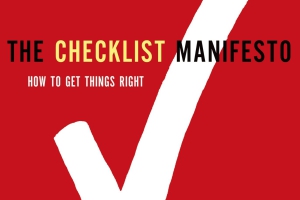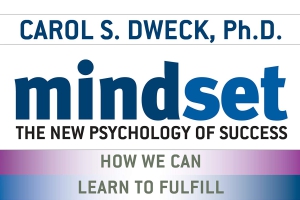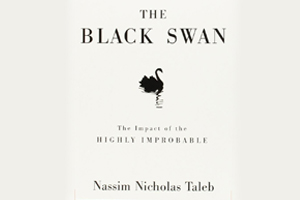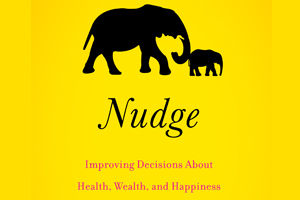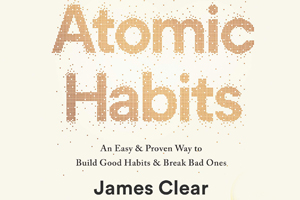Author: Scott Galloway
Achieving lasting wealth and financial success goes beyond mere accumulation of assets - it involves strategic planning, disciplined saving, and prudent investment. True financial independence means having the economic security to make life choices free from the constraints of financial stress. Whether through diversified investments, well-paid work, or sound financial habits, the path to enduring wealth requires a combination of knowledge, discipline, and a long-term perspective – and the framework for achieving the same is exactly what Scott Galloway delivers, in The Algebra of Wealth.
Author Scott Galloway is a distinguished clinical professor of marketing at New York University's Stern School of Business, as well as a public speaker, author, podcast host, and entrepreneur. After graduating from UCLA in 1987, Galloway began his career as a fixed income analyst at Morgan Stanley. His entrepreneurial journey started in 1992 with the founding of Prophet, a brand and marketing consultancy firm. He later launched RedEnvelope, an e-commerce site for unique gifts, in 1997. In 2005, Galloway founded the digital intelligence firm L2 Inc and the activist hedge fund Firebrand Partners. His latest venture, Section4, an online education startup, was founded in 2019. Galloway's contributions have been globally recognised, notably through his election to the World Economic Forum's "Global Leaders of Tomorrow" in 1999, an honour awarded to 100 individuals under 40, for their impactful achievements.
In The Algebra of Wealth, Galloway presents his personal blueprint for achieving financial freedom, distilled from his extensive experience in business and education. Galloway's approach integrates focus, stoicism, time, and diversification, providing readers with a comprehensive strategy to eliminate economic anxiety. Through a combination of well-paid work, diversified investments, and robust financial habits, the book guides readers towards building enduring wealth. Galloway's insights, supported by relatable anecdotes and real-world examples, challenge conventional wisdom and offer a fresh perspective on financial well-being. His pragmatic advice and actionable steps empower readers to attain economic security and the freedom to live life on their own terms.
In today’s evolving landscape, where each one of us is striving to achieve true financial success, Galloway’s blueprint is a simplistic yet proven way of building and sustaining wealth, thus making it lasting – something which has proven elusive for many rich people.
Key Takeaways
- True wealth is fundamentally about achieving economic security and stability
- The algebra of wealth is defined by the formula: Focus + (Stoicism x Time x Diversification)
- Mastering the psychology of financial choices is vital for effective wealth management
- Achieving enduring wealth demands a long-term vision and disciplined investment practices
- Managing risk and maximising returns rely heavily on diversified investments
- Prioritise continuous learning and skill development to invest in yourself
- Utilise technological innovations to refine and improve your financial strategies
An impactful pearl of wisdom from the book summarises Galloway’s take on life and financial freedom – “Social media is likely one of the great wealth destroyers in history. It robs young people of years of time when they need it most – when investing in work and (real) relationships can compound.” A simple look at our screen time confirms Galloway’s statement, while also acting as a testament to his genius.
Economic security is the real wealth
True wealth extends beyond mere monetary accumulation – it is fundamentally about achieving economic security and alleviating financial anxiety. This lesson draws from the author’s personal experiences, especially the challenging period following his parents' separation when economic stress became a constant companion. Galloway recounts an incident during a family ski trip when his 11-year-old son lost an €80 glove, causing the child significant distress due to its cost. This event took Galloway back to his own childhood in the early 1970s, marked by financial hardship after his parents divorced. He vividly remembers the anxiety that permeated his life, particularly when he lost two jackets in a single winter. The financial strain this placed on his mother was immense, turning minor incidents into sources of significant stress and guilt. These experiences instilled in Galloway a deep understanding of the true meaning of wealth. He learned that wealth is not about the luxury of affording expensive items but about the peace of mind that comes from economic security. For Galloway, the essence of wealth lies in the absence of economic anxiety. This perspective allows individuals to make life choices based on personal desires and values rather than financial constraints. Freed from the relentless pressure to earn, one can focus on living a fulfilling and meaningful life. Galloway's reflections illustrate that true wealth provides the freedom to live without the fear of financial instability, transforming how we perceive and pursue financial success.
Capitalism – a means to economic security
Achieving financial security in a system perceived as favouring the wealthy and powerful might seem daunting, but understanding capitalism and learning to navigate it can empower you to succeed. Various paths can lead to wealth and financial stability, as evidenced by the diverse successes of individuals like Jay-Z in music and business, Ronald Read’s USD 8 million fortune through frugal living and investing, and Warren Buffett’s USD 100 billion from early investment lessons. While replicating such extraordinary success is rare, consistent and prudent financial behaviour can still lead to significant economic security. Economic security is achieved when your assets generate passive income that exceeds your living expenses, known as your burn rate. This passive income can come from interest, real estate appreciation, dividends, and rental income. When your passive income surpasses your burn rate, you gain control over your life, enabling you to plan for the future without financial stress. Achieving financial security is possible even before retirement by building an asset base that can support your lifestyle both now and in the future. The goal is to accumulate assets whose net worth is 25 times your annual burn rate, assuming a 4% return rate. This ensures that your passive income will indefinitely cover your living expenses. To reach economic security, you must earn, save, and invest wisely. This requires hard work, discipline, and a strategic approach.
The four-part formula for building wealth
The Algebra of Wealth distils the process of achieving financial success into a clear and actionable four-part formula: Wealth = Focus + (Stoicism x Time x Diversification). Each element of this equation plays a critical role in building and sustaining wealth.
- Focus: It is extremely important to concentrate on generating a substantial and reliable income and accordingly, it is advisable to prioritise talent over passion when choosing a career path, as leveraging inherent skills typically leads to greater financial rewards. By focusing on areas where you excel, you can maximise your earning potential and build a solid financial foundation.
- Stoicism: This principle involves leading a disciplined and intentional life, both personally and professionally. Stoicism is about more than just saving money; it encompasses building strong character, being part of a community, and maintaining a balanced lifestyle. By living below your means and making prudent financial choices, which collectively contribute to long-term financial stability and resilience, you can build lasting wealth.
- Time: Recognising that time is the most valuable asset, it is important to start early in your financial journey. The power of compounding—where investments grow exponentially over time—means that the sooner you begin, the greater your potential for wealth accumulation. Indeed, every day counts and delaying investment decisions can significantly impact long-term financial outcomes.
- Diversification: To manage risk and optimise returns, it is advisable to spread investments across different asset classes and markets. Diversification helps mitigate the impact of market volatility and reduces the risk associated with individual investments. Understanding the basics of investing and making consistent, informed choices are crucial for sustaining wealth over the long term.
Key investment lessons from a lifetime of experience
Drawing from decades of investing experience, Scott Galloway imparts several critical lessons that have shaped his financial management philosophy. First, investors are advised to "zig when others zag," meaning they should avoid chasing popular investment trends such as cryptocurrencies or trendy stocks. By the time these investments become mainstream, much of their growth potential has likely been exhausted, and a downturn is often imminent. This principle also extends to higher education investments, where the return on investment may no longer justify the escalating costs. It is also important to not trust one’s emotions when making investment decisions. Instead, decisions should be grounded in one's risk tolerance and supported by thorough analysis of past mistakes. You should also periodically take profits to reduce exposure to volatile markets. It is also advisable to avoid day trading, which can be compared to gambling with unfavourable odds since studies reveal that only a small percentage of active traders consistently make money, underscoring the risks of this approach. If one feels compelled to speculate, do so with only a minor portion of your portfolio. Finally, evaluate the significant economic and personal impacts of one's living location. Being open to relocation can offer substantial financial benefits, such as lower taxes and better economic opportunities, thus enhancing one's overall financial situation. By following these principles, investors can navigate the complexities of financial markets more effectively and build a more secure and prosperous future.
Ultimately, Scott Galloway's Algebra of Wealth offers more than a blueprint for financial success – it provides a pathway to liberation from economic anxiety. By mastering the principles of Focus, Stoicism, Time, and Diversification, individuals can move beyond the relentless pursuit of material wealth, embracing a life characterised by autonomy and abundant choices. True wealth, as Galloway explains, is not about accumulating possessions but achieving economic security and the freedom to shape our own destinies.
While the best way to achieve economic security and freedom to make your own choices start with the investing journey, it stays on track due to discipline and an ability to master your financial behaviour. It is well known that behavioural biases can impact your ability to make the right investment decisions and derail your financial planning journey. But how do you overcome the impact of your behaviour and inculcate the desired discipline? The answer lies in a simple vehicle called a Systematic Investment Plan (SIP). An SIP is an investment vehicle that allows you to invest a fixed amount of money in a mutual fund scheme of your choice and at intervals that suit you best. Because the amount is decided by you, the stress of investing reduces significantly. More importantly, since it entails investing at periodic intervals, it allows you to invest at all levels of the market and not get impacted by market volatility. This is called rupee-cost averaging – since the money you invest is fixed, when prices go down you end up buying more units of the investments and when prices go up, you buy less units of the investment. Over a period of time, the cost of acquisition averages out. As a result, you can maintain discipline and not worry about the ups and downs in the market.
An investor education initiative by Edelweiss Mutual Fund.
All Mutual Fund Investors have to go through a onetime KYC process. Investor should deal only with Registered Mutual Fund (RMF). For more info on KYC, RMF and procedure to lodge/redress any complaints – please visit on https://www.edelweissmf.com/kyc-norms
MUTUAL FUND INVESTMENTS ARE SUBJECT TO MARKET RISKS, READ ALL SCHEME RELATED DOCUMENTS CAREFULLY.
Trending Books
MUTUAL FUND INVESTMENTS ARE SUBJECT TO MARKET RISKS, READ ALL SCHEME RELATED DOCUMENTS CAREFULLY.








